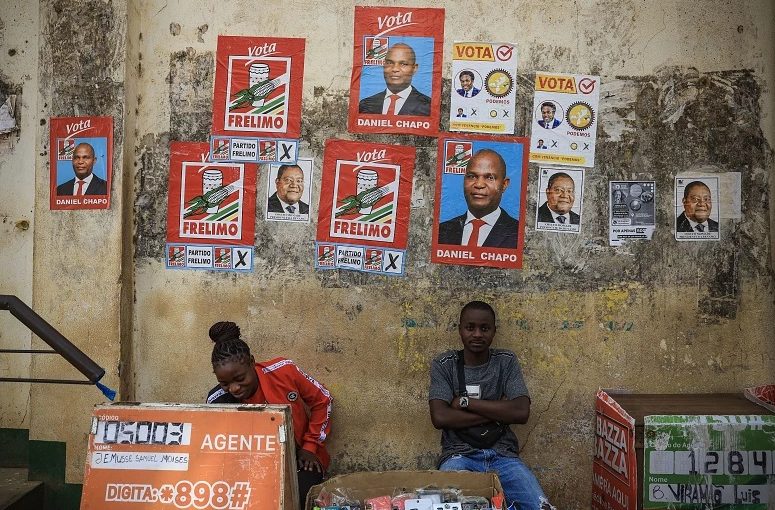Mozambique: Chapo urges citizens not to take the law into their own hands
Mozambique Elections: Presidential results may take 15 days even without second round

File photo: Lusa
More than 17 million Mozambicans will elect a new president in the general elections on Wednesday, but the publication of the results by the National Elections Commission (CNE) (there being no second round run-off) could take up to 15 days, and this must be done prior to the results being sent to the Constitutional Council for validation.
According to Law No. 15/2024 of 23 August, which was subject to a specific review in parliament, the partial count takes place immediately after the polls close, with a copy of the original result sheets (‘editais’) being published, “duly signed and stamped at the polling station’s operating location”, with the number of votes for each candidate, blank votes and invalid votes.
“The minutes and notice of the partial count must be posted on the polling station’s table in a place accessible to the public, by the respective president,” article 94 of the electoral law states.
The count is sent to the district election commissions (up to three days) and, in article 115, on the publication of results, it is established that the results of the provincial count, the next phase, “are announced by the president of the provincial election commission, within a maximum period of five days, counting from the day on which voting closes”.
In article 118 it is defined that the National Election Commission (CNE) is responsible for centralizing and publishing the electoral results obtained in each province by the candidates for the presidential elections, the count and publication of the general results of the legislative elections, as well as the distribution of mandates.
“The general tabulation of the election results is carried out based on the minutes and notices relating to the district and city tabulation, as well as on the centralization data received from the provincial election commissions (…) The general tabulation work begins immediately after the receipt of the minutes and notices from the provincial election commissions and continues uninterruptedly until its conclusion,” article 119 defines in turn.
Then, in article 123, on the “publication of the general tabulation”, it is stipulated that it is up to the president of the CNE, “within a maximum period of fifteen days from the date of the closing of the polls”, to announce the results of the general tabulation.
However, as in previous electoral processes, article 127 of the same law provides for the “validation and proclamation of the election results” by the Constitutional Council (CC), but without defined deadlines.
“After deliberating on the complaints or appeals, [the CC] will proceed to assess the minutes and the notice of national centralization of the results of the presidential elections and the minutes and notice of the general count of the legislative elections for the purposes of validation and proclamation,” article 127 reads.
On Wednesday, Mozambique will hold its seventh presidential elections – in which the current head of state, Filipe Nyusi, will no longer be running, having reached the constitutional limit of two terms – simultaneously with the seventh legislative elections and the fourth for provincial assemblies and governors.
The election for the office of President of the Republic is held by universal suffrage, for a five-year term, with “the candidate who obtains more than half of the valid votes cast” being elected.
“If none of the candidates obtains this majority of votes, a second ballot shall be held in which only the two candidates with the most votes who have not withdrawn their candidacy shall compete (…) In the second ballot, the candidate who obtains the highest number of validly cast votes shall be considered elected,” states article 128.
Unlike in the 2023 local elections, the revision of the electoral law removed from the district courts the power to order a repeat of the vote, which must take place by the second Sunday after the decision.
“Voting at any table in the polling station and voting in the entire area of the polling station shall only be deemed null and void if there have been illegalities that may substantially influence the overall result of the elections. (…) It is the responsibility of the Constitutional Council to declare null and void the elections regulated by this Law and to order the repetition of the elections,” states article 196.













Leave a Reply
Be the First to Comment!
You must be logged in to post a comment.
You must be logged in to post a comment.